Case value is determined by several factors specific to your unique case and not by a formula that can be applied to all cases. The experienced personal injury attorneys at NST Law can maximize your case value by ensuring all relevant factors receive due consideration.
KEY TAKEAWAYS
- Case Value is Unique: There’s no one-size-fits-all formula for determining case value. Factors specific to your individual case will influence the amount of compensation you receive.
- NST Law Maximizes Case Value: With 32 years of experience, NST Law has a proven track record of securing maximum compensation for their clients.
- Types of Compensation: Personal injury cases can result in compensatory damages (to reimburse for losses) and non-compensatory damages (to punish the defendant).
Factors Affecting Case - Value: Several factors influence case value, including the type of case, insurance coverage, fault, severity of injuries, earning capacity, and the jurisdiction where the accident occurred.
- Experienced Attorney is Crucial: Hiring a skilled personal injury attorney can significantly impact your case outcome. NST Law’s experienced team can help you navigate the legal process and maximize your compensation.
Valuing a Personal Injury Case
Calculating the value of any case requires an in-depth analysis of the incident and its effect on the victim. This is because every case is 100 percent unique. Despite claims to the contrary, there are no mathematical formulas that can be applied based on the type of case. Numerous individual factors must be taken into account.
NSt Law Will Maximize Your Case Value
The personal injury attorneys at NST Law have a 32-year history of obtaining maximized compensation for clients who are facing the most traumatic season of their lives.
- $6.3 million for the family of a man who suffered fatal injuries after being rear-ended by an 18-wheeler
- $2.2 million for a client who suffered a significant brain injury in a car accident caused by a construction company’s negligence
- $2.7 million for a client who suffered catastrophic injuries in a truck accident
- $1 million in a motorcycle accident in which a husband and wife sustained permanent injuries
- $970,201.58 verdict against a workers’ compensation carrier that had offered $18,000
What Types of Compensation Are Available in a Personal Injury Case?
The types of damages that are typically available in personal injury cases fall into two categories: compensatory and non-compensatory. Compensatory damages are meant to repay the plaintiff for the costs associated with the injuries and include economic damages and non-economic damages.
Non-compensatory damages are damages that serve not to compensate a victim, but to punish the liable party. Non-compensatory damages are also known as punitive damages.
Economic Damages
The types of damages that are typically available in personal injury cases fall into two categories: compensatory and non-compensatory. Compensatory damages are meant to repay the plaintiff for the costs associated with the injuries and include economic damages and non-economic damages.
Non-compensatory damages are damages that serve not to compensate a victim, but to punish the liable party. Non-compensatory damages are also known as punitive damages.
Non-Economic Damages
Non-economic damages are compensation for the significant non-monetary losses that stem from your injuries. These losses relate to the toll the accident has on your quality of life and may include the following:
- Pain and suffering
- Disfigurement
- Loss of bodily functions
- Loss of society
- Loss of consortium
Unlike economic damages that can be measured through documented financial costs, non-economic damages are subjective. Insurance companies commonly use multipliers to calculate these damages. The problem with this method is that the same multipliers are used in multiple cases without considering individual factors.
The non-economic damages are felt differently by different people based on the life activities and quality of life enjoyed prior to the accident. An experienced personal injury lawyer takes all these factors into consideration before arriving at a case value.
Punitive Damages
Punitive damages are rarely awarded. They are reserved for extreme cases when clear and convincing evidence proves that the injurious conduct occurred as a result of the following behavior by the defendant:
- Malicious
- Flagrantly reckless
- Illegal
- Oppressive
- Fraudulently concealed
Punitive damages are commonly awarded for injuries caused by drunk driving.
What Factors Determine My Case Value?
Case value is determined by multiple factors. Even when injuries in two different cases appear to be similar, the impact those injuries have on the individual are more important determinants of case value than the injuries themselves. Each effect of the injury must be considered with the big picture.
The Type of Case
Each type of case has separate governing statutes. Some states limit the available compensation in medical malpractice cases. Occupational injuries may be handled through workers’ compensation rather than through a lawsuit. In these cases, only economic damages are available unless other defendants can be identified.
Available Insurance
Most personal injury settlements are paid through insurance. Insurance companies are only required to pay up to the coverage limit.
For example, each state sets a minimum coverage requirement for automobile accidents. In most states, the minimum required medical coverage per person per accident is $25,000 or less. Many drivers only carry this required minimum.
If you are involved in an accident with a commercial vehicle, you may have access to much higher insurance coverage since commercial policies require higher minimum coverage. The same is true of cases involving premises liability or medical malpractice.
Fault
The assignment of fault in a case is a significant factor in case value. If a large company is at fault, you have the ability to collect more damages than if an individual is at fault. This is because large companies have more collectible assets than individuals.
If you are assigned part of the fault in an accident, you may still be able to collect compensation, depending on your jurisdiction, but the compensation will be reduced in proportion to your fault. In some states, you cannot collect compensation if you are more than 50 percent at fault.
Conduct of the Defendant
The defendant’s conduct during and after the accident is an important determinant of whether you can collect punitive damages.
The Severity of Your Injuries
Generally speaking, catastrophic injuries result in higher compensation for the following reasons:
- They result in greater pain and suffering.
- They require more medical treatment.
- They result in a higher loss of earning capacity.
Your Earning Capacity Before and After the Accident
Injury victims with higher-paying vocations prior to an accident may be entitled to higher damages when they are no longer able to earn income. Lost earning capacity factors in the actual earnings prior to the accident.
Where the Accident Occurred
The jurisdiction where your accident occurred is important because some jurisdictions set limits, or caps, on the compensation that can be recovered. The damage caps vary among the jurisdictions that set them. Below are the damage caps in the states where NST Law practices.
Tennessee Damage Caps
Non-economic damages are capped as follows:
- $750,000 for most injuries
- $1 million for catastrophic injuries
Punitive damages are also capped in Tennessee at the greater of:
- $500,000
- Twice the compensatory damages
However, punitive damages are not capped in situations involving the following:
- Malice
- Fraud
- Substance use
- The commission of a felony
Arkansas Damage Cap
Arkansas does not limit any damages.
Mississippi Damage Cap
Non-economic damages are capped at $1,000,000 unless the defendant is convicted of a felony for the injurious conduct.
Punitive damages are calculated based on the assets of the defendant.
Missouri Damage Cap
The state of Missouri does not cap damages except in medical malpractice cases and cases against a government entity, for which caps are adjusted annually for inflation by the Missouri Department of Insurance.
The 2022 non-economic cap for medical malpractice is $450,098. For government entities, the 2022 cap is $480,085.
Illinois Damage Cap
The state of Illinois does not limit damages. However, punitive damages are not available in medical malpractice cases in Illinois.
The Skills and Experience of Your Personal Injury Attorney
Perhaps the most important determinant of case value is the skill and experience of your personal injury attorney. When selecting a personal injury lawyer, it is important to evaluate the following:
- The law firm’s history of results
- Whether the law firm has verifiable satisfied clients
- Whether the law firm has attorneys that specialize in your case type
- The experience of the law firm
- The law firm’s reputation
At NST Law, we have 32 years of experience standing up to insurance companies for injured individuals. During that time, we have expanded our practice to more than 35 attorneys, 135 support staff, and with the resources to retain qualified and leading medical and forensic consultants. Our attorneys routinely handle the following types of cases:
What if the Opposing Party Does Not Have Insurance?
Being hit by an uninsured driver can be stressful. In addition to not having insurance coverage from which to collect, drivers who fail to purchase the required insurance typically do not have collectible assets that would make a lawsuit worthwhile.
Fortunately, options for collecting compensation may be available. If you own an uninsured motorist policy, you can usually collect the same damages from your own policy that should have been available in the other driver’s liability policy.
In addition, a skillful personal injury lawyer may be able to identify liable third parties, such as a manufacturer of defective automobile parts or a government entity that failed to properly maintain a public roadway.
How Will My Case Value Be Calculated?
Your economic damages are an important cornerstone of your case value. These damages are difficult for the opposing party to refute because they are easily verifiable.
Non-economic damages are subjective and thus require more skill in justifying and negotiating. Punitive damages are awarded by a court or a jury according to state law and the court’s view of the defendant’s conduct.
Can I Trust the Insurance Company’s Calculation?
The insurance company works to serve its own interests by minimizing compensation. They do this by attempting to reduce their own liability and underestimating the impact of your injuries.
Insurance companies may try to blame you for your injuries or persuade you to admit fault to any degree so they can use this against you. It is advisable to avoid conversing with insurance companies and refer them to your attorney.
Will I recover more compensation if I go to trial?
The ideal scenario in personal injury cases is to reach a reasonable settlement. Settlements are preferable because they are less costly for all parties and result in faster case resolution.
Taking a case to trial may result in higher compensation, but this is not always the case. Verdicts can be appealed, and this can drag the case out for years.
How can I maximize my compensation?
The most important steps you can take to maximize your compensation are the following:
- Seek immediate medical treatment.
- Follow your medical treatment plan to completion.
- Document your injuries from the beginning.
- Save your medical bills and receipts.
- Don’t talk to the insurance company.
- Never admit fault to anyone.
- Don’t talk about your case on social media.
- Contact a qualified personal injury attorney at NST Law as soon as possible.
With an NST Law attorney on your side, you will receive personalized service from a dedicated legal team that will stop at nothing to recover maximized compensation on your behalf. Our results are driven by our passion and concern for each client. This is why we are the champions for the injured.
If you have been injured through the fault of someone else, you need a champion, and you’ll find one in NST Law. You don’t have to go through it alone. Call the champs today for a FREE consultation and case review.
 Skip to content
Skip to content


